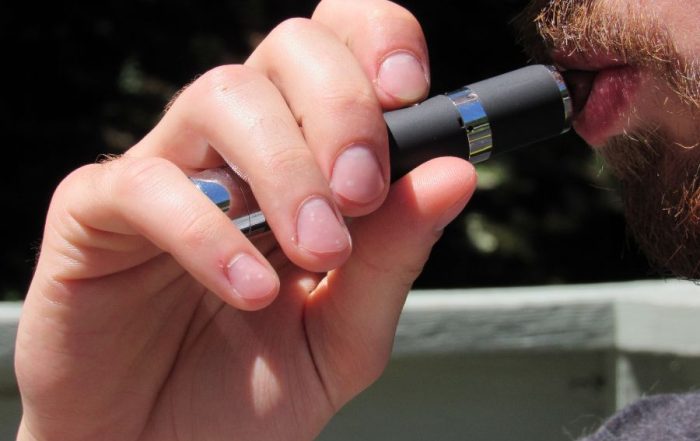How to Talk to Someone About Your Substance Abuse
When you struggle with a substance use disorder, most of us eventually come to a place in which we realize we need help. Perhaps you’ve tried to quit or cut back in the past. Many of us have had this experience – we switch drugs, tell ourselves we’ll only use on the weekends, or only in the evenings. Sometimes we’ve tried to quit altogether, or gone on the “marijuana maintenance” program, with limited success. What’s important to know is that if you find yourself struggling with a substance abuse problem, you’re not alone. A good first step is to turn to the loved ones in your life who can provide you with support.
While having this conversation will be scary and difficult, you will likely find that if you approach them in a humble and honest way, the conversation is often well received. These suggestions can help you have a more productive discussion with your family or friends.
First, realize you are not alone
Drug and alcohol addiction isolates us. This is an almost universal experience among those who’ve experienced this problem. However, you are not alone. It is well accepted in the scientific and medical communities that addiction is a disease, not a moral failing. Additionally, addiction affects over 21 million Americans.
The fact that you’re preparing to ask for help doesn’t make you weak, and the fact that you can’t shake your drug habit doesn’t make you a bad person. Around 10% of individuals who consume a mind altering substance go on to develop substance use disorders.
You are one of many who struggle with alcohol and drug abuse. One common thread among those who recover is that it starts with a moment of honesty.
Pick a time and place
Starting a conversation with close friends or family about your drug or alcohol abuse can be a scary proposition. We recommend starting by picking a time and place that is conducive to a private, honest conversation.
This step is all about setting yourself up to have the smoothest conversation possible. Talking about your addiction isn’t something you can do on a whim or during a short car ride. Make it known to your loved ones that you intend to talk to them about something serious. It’s not generally a good time to set up a conversation through text messages – a phone call stating that you have something to talk with them about will generally suffice. Remember that you are preparing to ask for help.
We’d recommend doing it in a relaxed setting with limited distractions. Avoid having the discussion over dinner in a quiet restaurant since this may be a highly emotional experience. If you live with your family, perhaps sitting in the living room is a good place. If not, then work to set a time when you can go over to their house or they can come to you.
When it’s time for the discussion, it’s a good idea to ask that everyone set their phones to silent to ensure you’ll have their full attention.
Decide what you want to say
Once you have a day and time set for the discussion, it’s a good idea to think through what you want to say. Making some notes in advance can be very helpful in sorting through your thoughts. You can write out a full speech if you want, or simply write down some bullet points.
Maybe your family and friends already know you’ve got a drug problem, and maybe they don’t. Remember that most of the time, our friends and family already have their suspicions. It is extremely uncommon for family members to be completely in the dark about our drug addictions. Your family is likely to feel validated and it’s likely that you’ll feel a great sense of relief by telling the truth.
Avoid blaming anyone present for any of the problems that get brought up. You’ve got plenty of time to sort through any issues or trauma you have. Now is a time for honesty and humility, not pointing fingers. As strained as your relationships feel at this moment, remember that the healing process often starts with a conversation such as this one.
Answer their questions
It’s unlikely that your family won’t have any questions for you. You’ll want to be ready for this going into the conversation. Remember that you’ve had some time to think about this conversation in advance, and they haven’t. It’s likely that they will be processing some intense feelings as you talk. This is okay.
Answer questions as honestly as possible. They may ask how long this has been going on, what drugs you’ve been using, or about missing valuables. They may even ask you about specific individuals you’ve been spending your time with. Be prepared to tell the truth while making it clear that you want to take steps to change.
Ask for help
At some point, it’s time to ask for their support or help. Make it clear that you’re willing to take steps to change. It’s likely that the trust in your relationships is very damaged at the moment. Your family may or may not believe you, and they may or may not begin to lay some ground rules for the relationship going forward. Whatever happens, be prepared to begin showing them through your actions.
While you may feel uncomfortable reaching out in this way, it’s likely you will need their strength to help you begin the recovery process. Some of your relationships may be strained, and those individuals may be less willing to support you. That’s okay. Take the support where you can get it. You’ll have the chance to work on repairing strained relationships later in your recovery.
Next steps after discussing your addiction with family or friends
If you have tried to stop using drugs or alcohol unsuccessfully, it may be time to seek professional help. Your loved ones can help you find the best substance abuse treatment programs, age-appropriate substance abuse support groups, or health services for your situation. Additionally, many treatment centers are more than willing to evaluate your situation and make recommendations in the beginning. As you begin participating in a recovery program, the support you get from those in your life will increase your chances for a sustained sober lifestyle.
If you live anywhere in the Southeastern United States, feel free to reach out to our program if you would like help developing a plan to begin your recovery journey.







